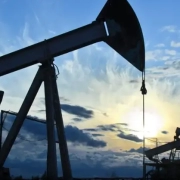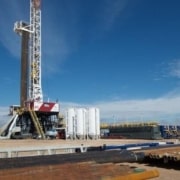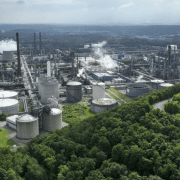US oil and gas industry is emitting less carbon than it used to
The US oil and gas industry continues to extract record amounts of fossil fuels, despite climate activists’ calls to “keep it in the ground.” But while oil and gas extraction has increased in recent years, the carbon emissions from that industrial activity have actually fallen, a new analysis has found.
Even as fossil gas production rose by 40 percent from 2015 to 2022, methane emissions from gas extraction fell by 37 percent, according to a study of Environmental Protection Agency data published today by climate nonprofits Ceres and the Clean Air Task Force. That finding suggests that when energy companies want to, they can effectively reduce emissions of methane, a potent greenhouse gas with 82 times the global warming potential of carbon dioxide over 20 years, and 30 times the warming potential over 100 years. Overall greenhouse gas emissions, which count the industry’s considerable carbon dioxide releases, also fell, but by a more modest 14 percent.
There’s a clear playbook for tackling the planet-warming emissions that result from combusting fossil fuels in power plants or vehicles. But the extraction of those fuels happens farther from public view, and adds up to a major source of industrial emissions. Indeed, oil and gas extraction and refining emitted more greenhouse gases into the atmosphere than any other industrial subsector last year, the Rhodium Group reports. And while power and transportation emissions are falling, heavy industry is on track to become the largest emitting sector within the next decade.
Click here to read the full article
Source: Canary Media
—
If you have any questions or thoughts about the topic related to US oil and gas industry, feel free to contact us here or leave a comment below.












Leave a Reply
Want to join the discussion?Feel free to contribute!